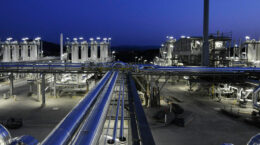BASF in Schwarzheide participates in the DemoRec research project
BASF Schwarzheide GmbH has joined a consortium consisting of research institutes and other companies from the fields of automotive engineering, mechanical engineering, materials and recycling. The aim is to further industrialise the dismantling process of automotive traction batteries, which is currently still largely carried out manually, and to further increase the degree of automation within the dismantling process. The project will run for three years and is funded by the German Federal Ministry of Education and Research (BMBF) as part of the SynBatt call for proposals.
With the growing market share of electric vehicles on the roads, the number of battery systems that have to be taken out of service and recycled after their useful life in the vehicle is also increasing. In terms of a sustainable closed-loop approach, this requires scalable processes along the value chain from the removal from the vehicle to the return of the materials to the production of new battery generations.
Battery disassembly plays a central role within this process chain, since on the one hand a wide variety of designs and individual battery conditions have to be dealt with. On the other hand, continuous material flows are needed for recycling. To this end, the research project is investigating the question of increasing the degree of automation within battery disassembly, taking into account the above-mentioned boundary conditions.
A central project goal is the construction of a system prototype for linking automated and manual process steps in battery disassembly.
Within the project duration of three years, the product- and process-related challenges of current and future battery system generations (cell-to-pack) are to be investigated and a plant prototype developed. Further core aspects are the interface processes of discharging and mechanical pre-processing before recycling as well as the derivation of guidelines for a design for disassembly of future traction batteries.
Read more: DemoRec - RWTH AACHEN UNIVERSITY PEM - English (rwth-aachen.de)



